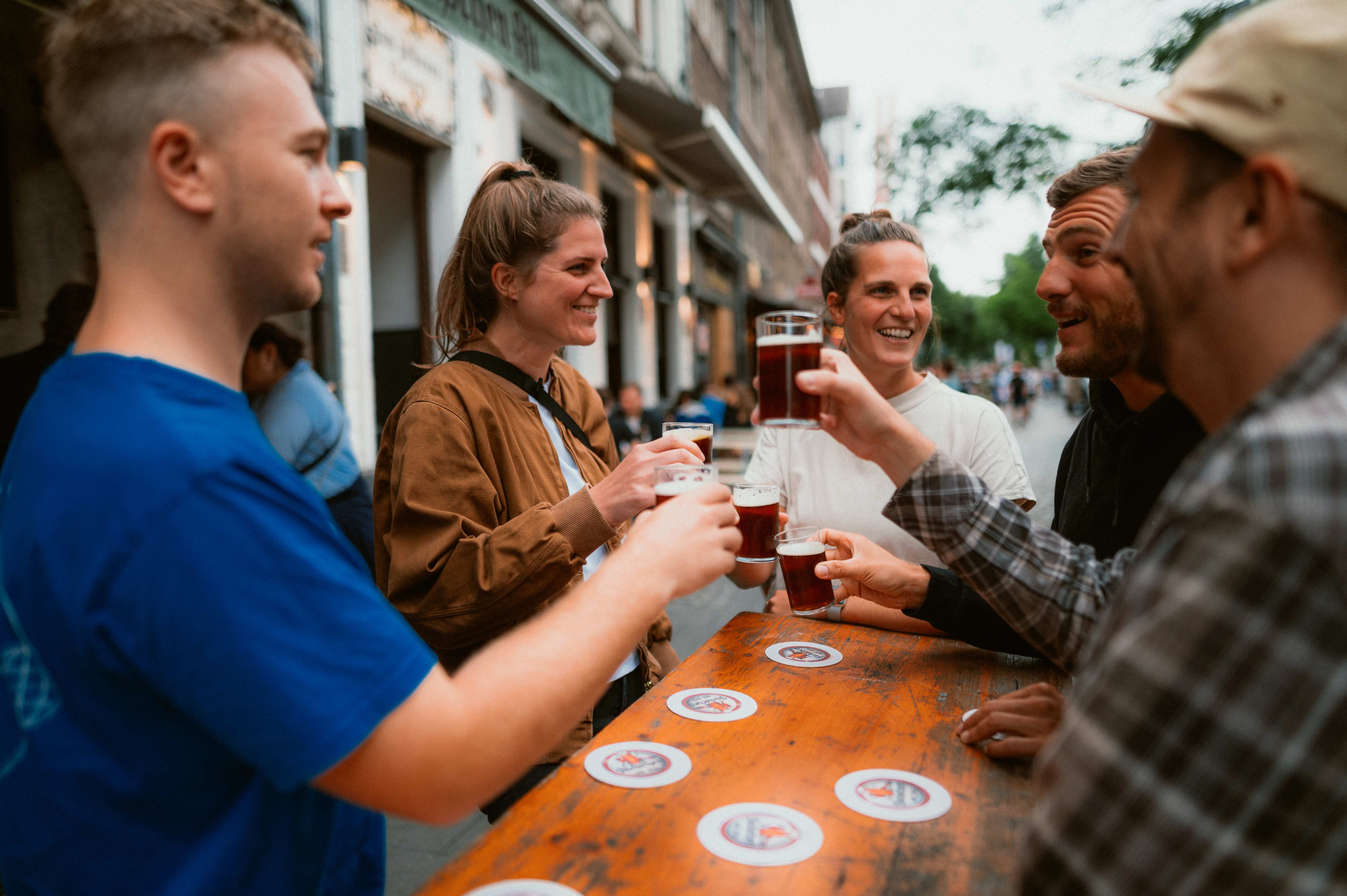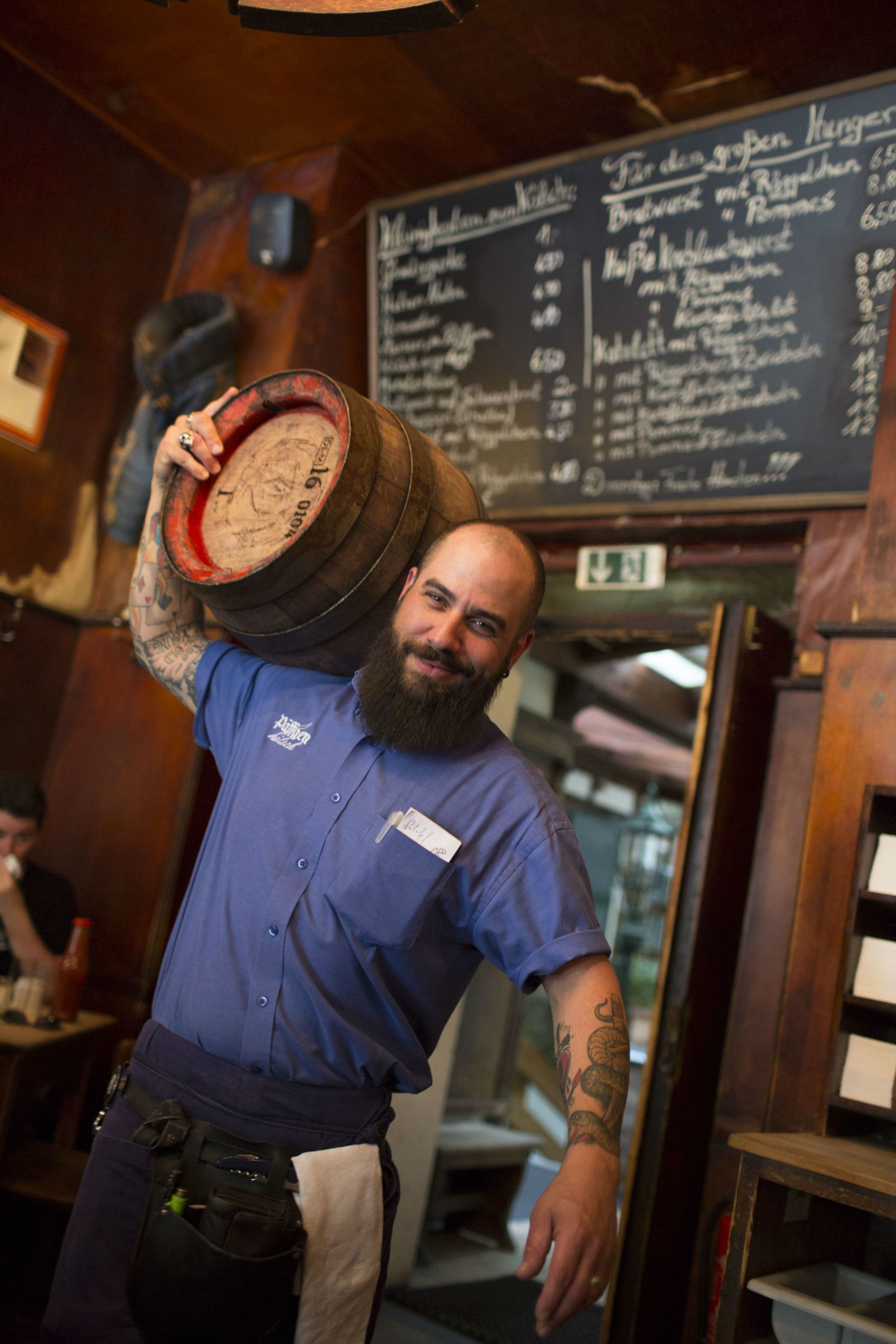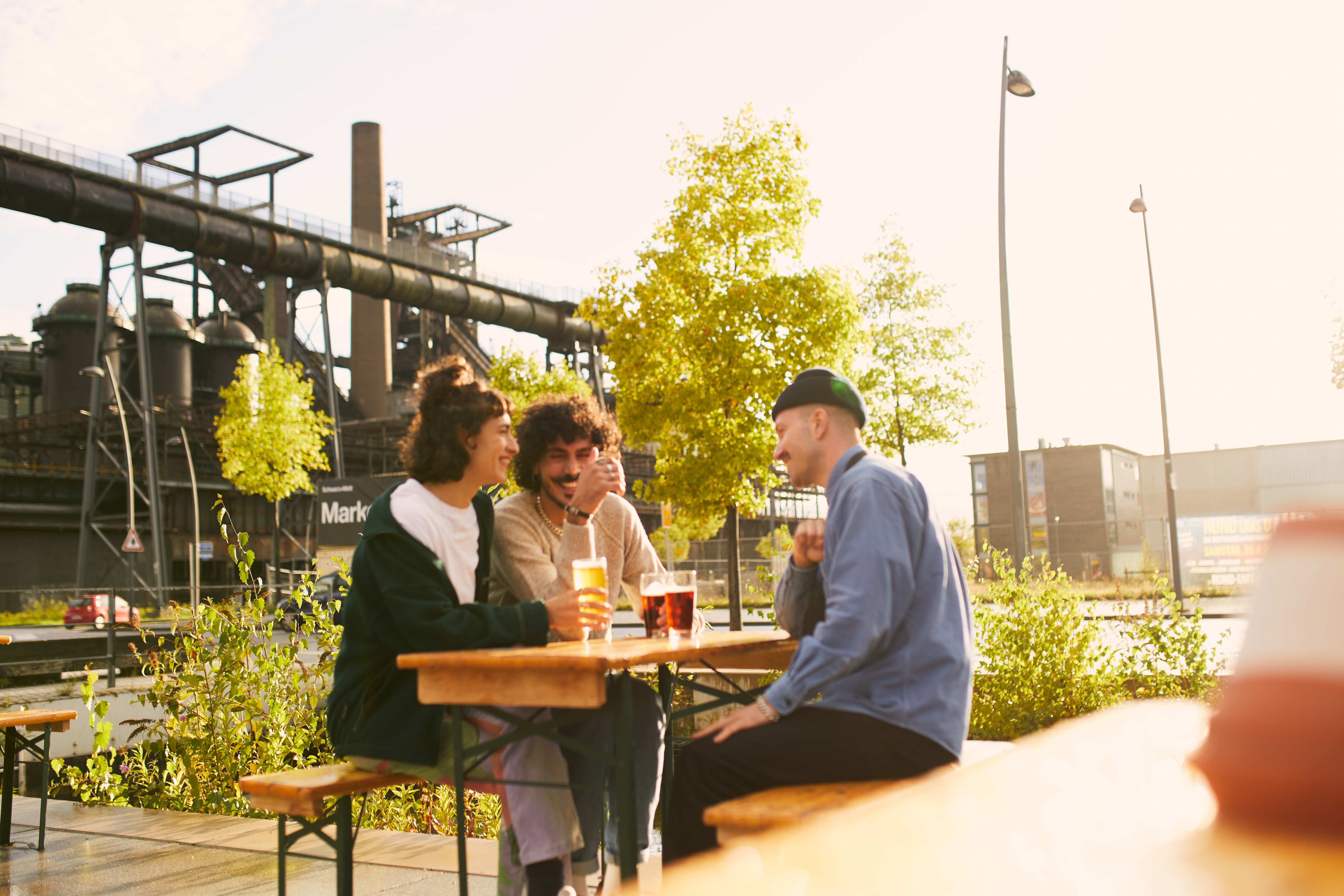Do you have questions about beer and visiting a brewery? Here you can find answers and quench your thirst for knowledge! But despite all the theory, in the end your own experiences are the best treasure trove of knowledge. We hope that our collection will provide you with useful knowledge and hope you enjoy the practical test, because when it comes to beer, the proof of the pudding is in the eating.
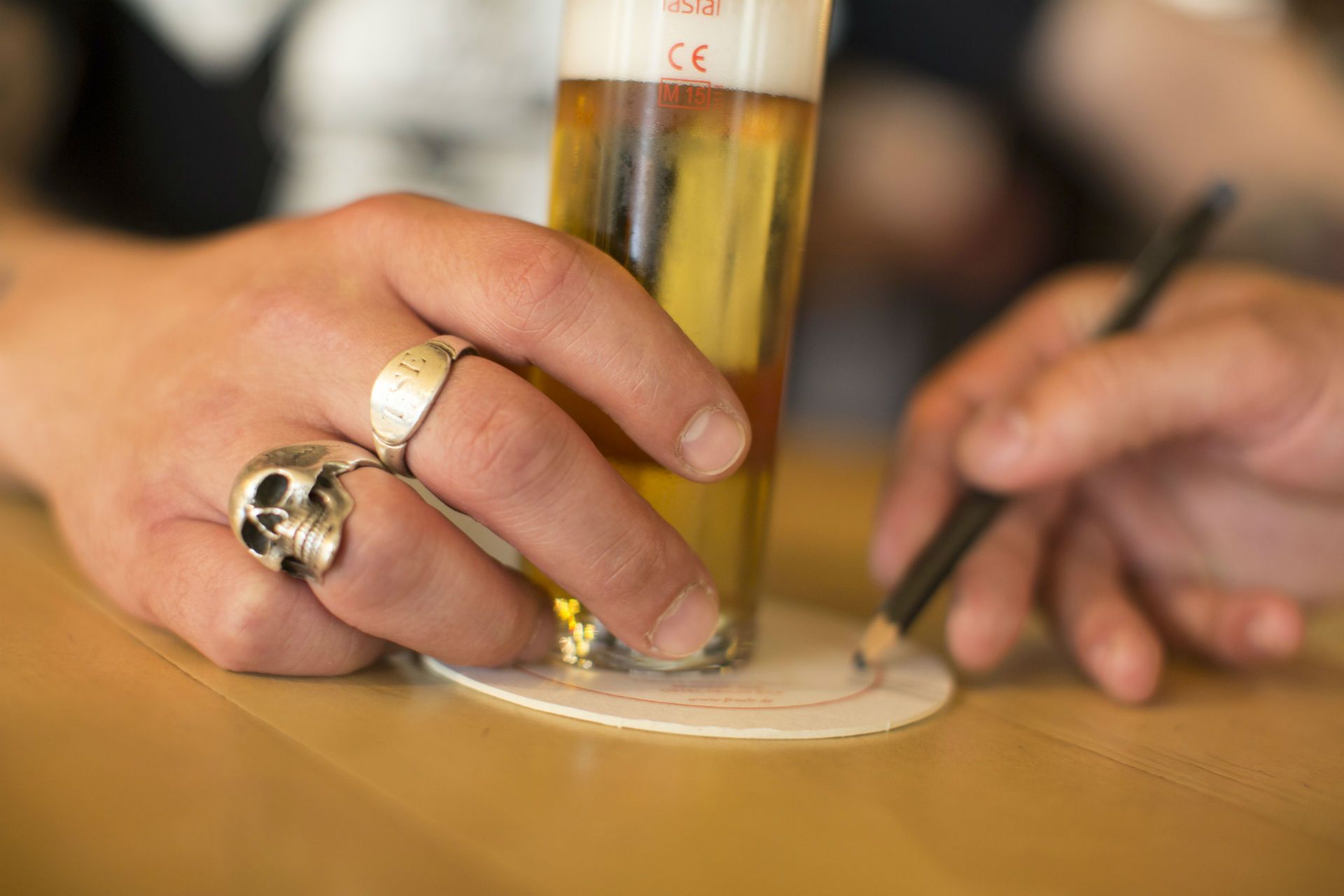
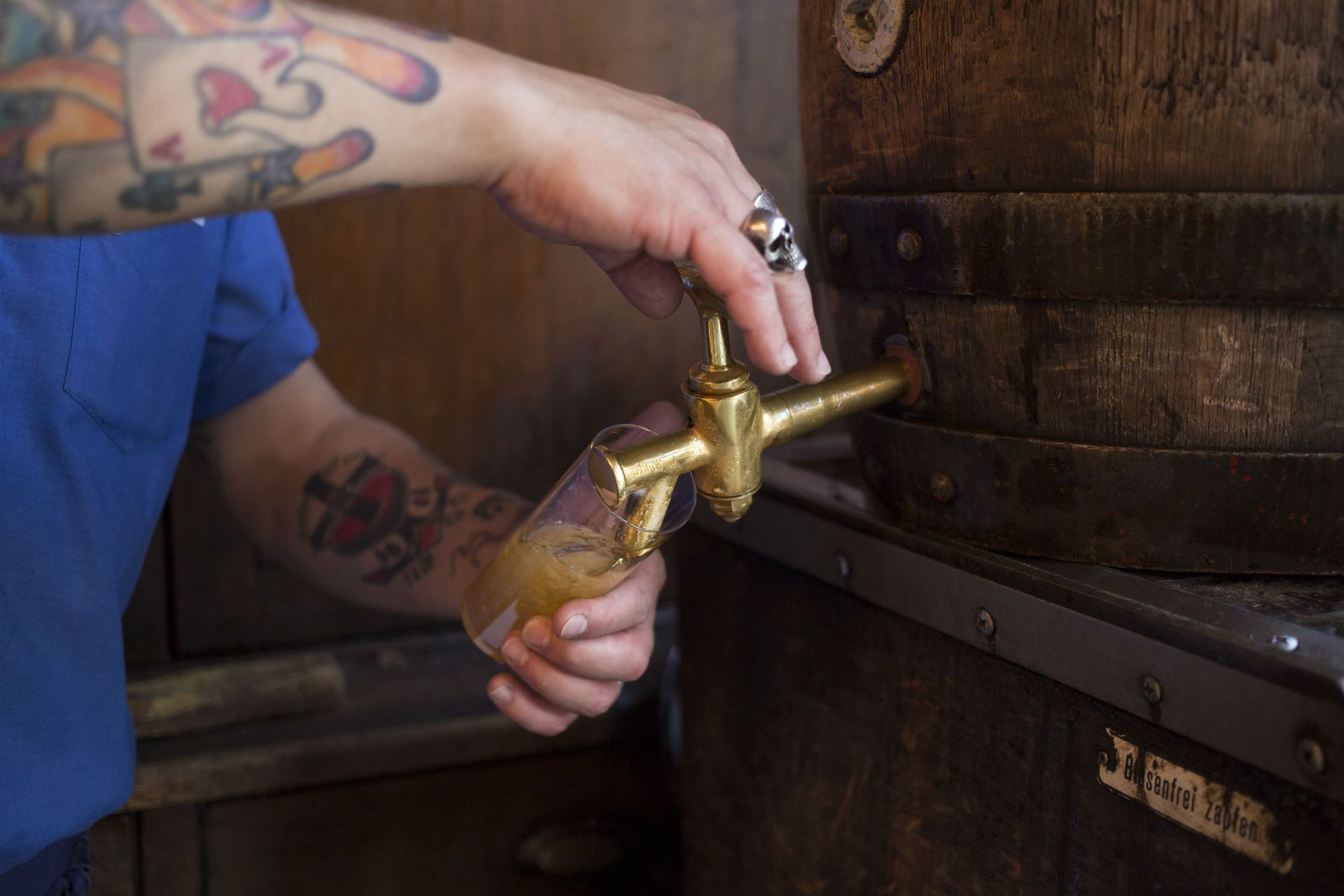
FAQs about beer
Twelve questions and the answers
There are many breweries in NRW, from large, internationally recognised breweries to small, craft breweries. The German Brewers' Association estimates that there will be around 130 in 2023. This puts NRW in third place in the state comparison in terms of brewery density. The Cologne Brewers' Association alone has 17 member companies, while 30 breweries are members of the NRW Brewers' Association.
In North Rhine-Westphalia, Pils, Alt and Kölsch flow in very different regional quantities. However, with a share of around 75 per cent of beer output, Pils is one of the most popular varieties, followed by Alt and Kölsch. Incidentally, Alt and Kölsch have more in common than is often thought: while Pils is a bottom-fermented beer, both Rhenish specialities are top-fermented beers. This means that the yeast floats on top.
The number of beer varieties is probably in the hundreds if all the variations and seasonal breweries are included. However, it is almost impossible to determine an exact number, as the types of beer are almost as diverse as the people who live here. Traditional beers such as Pilsner, Kölsch and Altbier are a staple, but they are complemented by a growing number of craft beers and seasonal specialities. In addition, there are more and more microbreweries and craft beer breweries that offer a wide range of beer types, including wheat beers, IPAs, stouts, sour beers and many others.
The Germanic tribes were already brewing beer for their own consumption and cult rituals in the early Middle Ages. As Christianisation progressed around 1000 AD, brewing in regional monasteries developed into an art in its own right. In the 15th and 16th centuries, beer production increasingly shifted from the countryside to the cities. Foreign trade in this sector began to flourish. At the end of the 17th century, a guild was formed from various guilds. Industrialisation led to a real brewing boom in the 19th century. Many companies that are still writing success stories in NRW today were founded at this time. Examples include the Stauder family brewery in Essen, the Diebels brewery in Issum and the private Strate brewery in Detmold.
The "most popular" beer can vary depending on the region. Kölsch is drunk in Cologne, while Altbier is the clear favourite in Düsseldorf. These preferences are often deeply rooted in the local culture. However, generally popular German brands such as Veltins, Warsteiner and Krombacher, which are produced in the Sauerland and Siegerland regions, are also very popular in NRW.
NRW offers a unique beer culture that ranges from traditional breweries to modern craft beer bars. Here you can get to know beer traditions that you won't find anywhere else in the world: Freshly brewed Kölsch, for example, can only be found in the cathedral city, because according to the Kölsch convention, it can only be brewed in Cologne. In the Lower Rhine region, you will find the roots of its dark counterpart with a malty flavour: the Bolten brewery in Korschenbroich is considered to be the oldest Alt-Bier brewery in the world.
NRW is home to some of the most famous breweries in Germany. These include, for example, Cologne's breweries with their famous Kölsch, Dortmund's breweries known for their export beer and Düsseldorf's Old Town with its Altbier tradition. Many breweries offer guided tours and tastings.
For newcomers, the menu in the Brauhaus has many a surprise in store. For example: the Halve Hahn. Millions of visitors to Cologne have looked forward to ordering half a chicken - and what did they get? A rye roll with a thick slice of cheese (and mustard), served with a smug grin from the Köbes' (waiter). You should also be careful with Kölsch caviar, as it is not what the name suggests. Instead of the noble fish eggs, in this case a hearty black pudding with lots of bacon cubes is served. But caviar goes better with champagne than beer anyway.
The regional cuisine in NRW complements the beer experience perfectly. Typical dishes that you should try in the brewery include Rhenish sauerbraten, Himmel und Ääd, i.e. baked black pudding with mashed potatoes and apple compote or Krüstchen, schnitzel on bread with fried egg and salad. Of course, there are also vegetarian dishes, such as the Halven Hahn (see above).
The Stößchen is a small, 0.1 litre glass and a Dortmund speciality. Today, it is a common sales unit, especially in the pubs around the Alter Markt, even if it is often not on the menu. Stössje are also well-known in Cologne and the surrounding area. It is often used by innkeepers or Köbes to drink a Kölsch offered by the guest without having to drink the usual amount of a Kölner Stange (0.2 litre).
After the first order, it continues without words: when the glass is empty or as good as empty, the Köbes brings a new one without being asked. But at some point, even the most beer-fuelled evening is over. Then you can tell the Köbes that you want to pay. Or you can continue to communicate without words - and simply place the beer mat on top of the empty glass. And the Köbes will know.
North Rhine-Westphalia plays a very central role in beer culture, both in the past and today. The oldest Altbier brewery in the world has been located in Korschenbroich in the Lower Rhine region since 1266. The small private brewery Bolten has been brewing the hand-made Ur-Alt there for generations. Other breweries from NRW have made a name for themselves with pilsner: Krombacher, Warsteiner and Veltins, three of the ten largest breweries in Germany, have their headquarters in North Rhine-Westphalia. NRW also contributes significantly to the diversity and vibrancy of the German beer landscape with Kölsch and Altbier as well as numerous breweries and traditional breweries.
